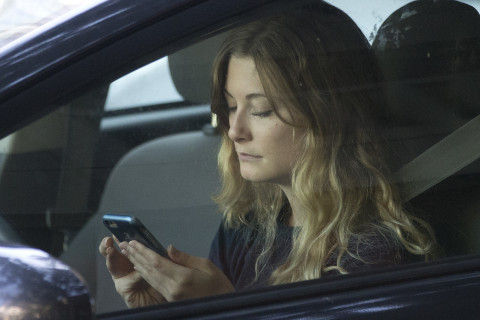WASHINGTON — It would become the toughest distracted-driving law in the country, if enacted. But D.C.’s three-strikes bill has some problems.
The D.C. Council is expected to vote on the bill Tuesday. Drivers who are caught using a handheld device or texting behind the wheel three times in 18 months would lose their license for 30 to 90 days and be fined $200.
First-time offenders would be fined $100 and would no longer be able to drop the penalty if they prove they bought a hands-free device. A second offense within 18 months would result in a $150 fine.
But the D.C. Police Department doesn’t currently have real-time technology capable of tracking distracted-driving violations — police officers would not know whether a suspected distracted driver is a first-, second- or third-time offender during a traffic stop. So the bill could not go into effect until after such an electronic data system can be implemented.
There’s another problem: In an Oct. 4 memo to the D.C. Council, the District’s chief financial officer, Jeffrey DeWitt, said there’s not enough money in the budget until after fiscal year 2020 to implement the technology.
“It is neither possible to determine the extent of the costs of the technology nor to determine the number of officers issuing tickets and generating revenue therefrom,” DeWitt writes. “There also may be additional system enhancement costs once the technology is introduced, but those costs are unknown at this time.” He added that the District issues about 6,900 distracted-driving tickets a year.
DeWitt also points out that the D.C. police use paper tickets, as well as handheld electronic devices, to issue violations, so the department would have to deploy those devices to all ticketing officers. Some officers who wear body cameras are using smartphones to issue tickets, but it’s not clear how much it would cost to implement the new system and software upgrades for everyone.
AAA Mid-Atlantic spokesman John Townsend said he is glad the District is cracking down on texting-while-driving and supports the bill, but says it still doesn’t go far enough to address other distractions, such as in-car technology.
“Nor does this bill address new forms of distractions on the road, such as using earbuds while driving or headphones while driving,” Townsend said.
“It’s curious to us that the District is the only local jurisdiction that does not ban the use of earbuds or headphones while driving. In Maryland and in Virginia, you can use those devices but you can’t have them in both ears. The District doesn’t address that.”
Also, the bill does not specify that only D.C. drivers would face these increased penalties, so it’s unclear how the District could suspend out-of-state licenses.
Townsend worries that drivers would not be deterred by a suspended license, putting the public in jeopardy. “If you take a person’s driver’s license away, chances are they won’t stop driving. They will continue to drive, and now they’re driving illegally. That increases the chances of that person … [fleeing] the scene of an accident. In case someone is injured in that crash, they won’t stick around to render aid,” he said.
“We know that when we have drivers going about with suspended driver’s licenses that becomes not only a risk to other drivers on the highway, it also increases the insurance premium for all other drivers, too, because of the risk those drivers bring.”
Townsend said the bill would make D.C.’s distracted-driving penalties the toughest in the nation because all drivers, regardless of residency or age, would automatically lose their license after three prior violations.
Currently, New Jersey imposes the harshest penalties for distracted driving. Third-time offenders there are fined up to $800 and face a possible 90-day license suspension.
Texting and driving is banned in D.C., Maryland and Virginia, where AAA notes 8 out of 10 traffic crashes are related to distracted driving.







